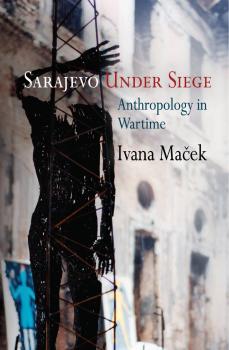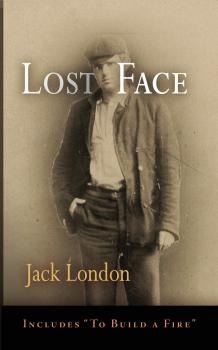ТОП просматриваемых книг сайта:
ЛИТМИР - LITMIR.BIZ - Электронная библиотека
Скачивание или чтение онлайн электронных книг.Аннотация
Sarajevo Under Siege offers a richly detailed account of the lived experiences of ordinary people in this multicultural city between 1992 and 1996, during the war in the former Yugoslavia. Moving beyond the shelling, snipers, and shortages, it documents the coping strategies people adopted and the creativity with which they responded to desperate circumstances. Ivana Maček, an anthropologist who grew up in the former Yugoslavia, argues that the division of Bosnians into antagonistic ethnonational groups was the result rather than the cause of the war, a view that was not only generally assumed by Americans and Western Europeans but also deliberately promoted by Serb, Croat, and Muslim nationalist politicians. Nationalist political leaders appealed to ethnoreligious loyalties and sowed mistrust between people who had previously coexisted peacefully in Sarajevo. Normality dissolved and relationships were reconstructed as individuals tried to ascertain who could be trusted. Over time, this ethnography shows, Sarajevans shifted from the shock they felt as civilians in a city under siege into a «soldier» way of thinking, siding with one group and blaming others for the war. Eventually, they became disillusioned with these simple rationales for suffering and adopted a «deserter» stance, trying to take moral responsibility for their own choices in spite of their powerless position. The coexistence of these contradictory views reflects the confusion Sarajevans felt in the midst of a chaotic war. Maček respects the subjectivity of her informants and gives Sarajevans' own words a dignity that is not always accorded the viewpoints of ordinary citizens. Combining scholarship on political violence with firsthand observation and telling insights, this book is of vital importance to people who seek to understand the dynamics of armed conflict along ethnonational lines both within and beyond Europe.
Аннотация
At his peak, about the time this collection was first published in 1910, Jack London was the highest-paid and perhaps the most popular living American writer. Lost Face consists of seven short works, including the title story and his finest and best-known short story, «To Build a Fire.» Now in paperback for the first time, this collection appears as it was originally published. Jack London grew up in poverty, educated himself through public libraries, and, in addition to writing, devoted his life to promoting socialism (although he eventually resigned from the Socialist Party). Despite his financial and critical success, in the end he succumbed to alcoholism and depression and died of a drug overdose. During the 1898 gold rush, London traveled to the Klondike to seek his fortune. It was this experience that had the most profound effect on his writing. Not only did he mine the far north environment for subject matter (and all the stories in Lost Face take place in the Yukon), but his laconic style drew upon its cold harshness and loneliness, where people and beasts had to work together or against each other for survival. London's stories are treasured for their insights into the psychology of both people and animals—particularly dogs—and Lost Face is a brilliant collection of some of the finest examples of London's craft.
Аннотация
In this book Alexia Bloch examines the experiences of a community of Evenki, an indigenous group in central Siberia, to consider the place of residential schooling inidentity politics in contemporary Russia. Residential schools established in the 1920s brought Siberians under the purview of the Soviet state, and Bloch demonstrates how in the post-Soviet era, a time of jarring social change, these schools continue to embody the salience of Soviet cultural practices and the spirit of belonging to a collective. She explores how Evenk intellectuals are endowing residential schools with new symbolic power and turning them into a locus for political mobilization. In contrast to the binary model of oppressed/oppressor underlying many accounts of state/indigenous relations, Bloch's work provides a complex picture of the experiences of Siberians in Soviet and post-Soviet society. Bloch's research, conducted in a central Siberian town during the 1990s, is ethnographically grounded in life stories recorded with Evenk women; surveys of households navigating histories of collectivization and recent, rampant privatization; and in residential schools and in museums, both central to Evenk identity politics. While considering how residential schools once targeted marginalized reindeer herders, especially young girls, for socialization and assimilation, Bloch reveals how class, region, and gendered experience currently influence perspectives on residential schooling. The analysis centers on the ways vehicles of the Soviet state have been reworked and still sometimes embraced by members of an indigenous community as they forge new identities and allegiances in the post-Soviet era.
Аннотация
In this provocative and insightful book, constitutional scholar and journalist Garrett Epps reviews the key decisions of the 2013-2014 Supreme Court term through the words of the nation's nine most powerful legal authorities. Epps succinctly outlines one opinion or dissent from each of the justices during the recent term, using it to illuminate the political and ideological views that prevail on the Court. The result is a highly readable summary of the term's most controversial cases as well as a probing investigation of the issues and personalities that shape the Court's decisions. Accompanied by a concise overview of Supreme Court procedure and brief case summaries, American Justice 2014 is an engaging and instructive read for seasoned Court-watchers as well as legal novices eager for an introduction to the least-understood branch of government. This revealing portrait of a year in legal action dramatizes the ways that the Court has come to reflect and encourage the polarization that increasingly defines American politics.










